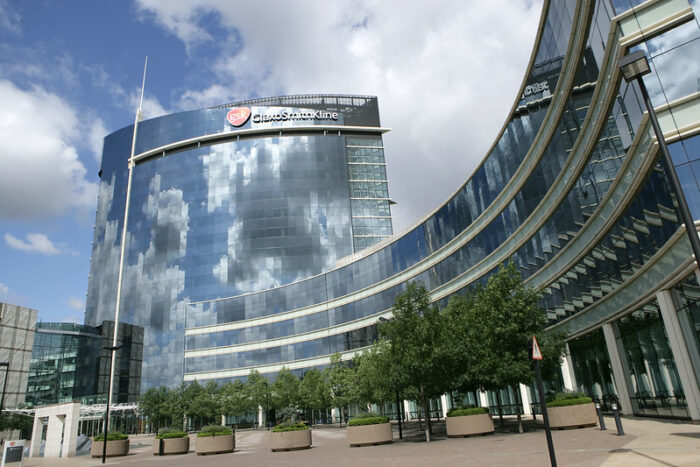
GlaxoSmithKline is hunting for assets to build up its drug portfolio and the pharmaceutical giant is getting a big one through a $1.9 billion deal to acquire Sierra Oncology, a company whose lead product candidate is a projected blockbuster seller that is now being readied for submission to the FDA. It’s a hefty sum for a drug that Gilead Sciences abandoned and was scooped up by Sierra for a pittance.

The Role of Consultants in Tackling Healthcare Expenses
To ensure effective cost mitigation, employers can’t wait for the market to adjust — they have to punch first.
Under the terms of the acquisition agreement announced Wednesday, GSK will pay $55 for each share of San Mateo, California-based Sierra, a nearly 40% premium to the stock’s Tuesday closing price. The premium reflects the promise of momelotinib, a drug Sierra developed to treat the rare blood cancer myelofibrosis. The deal comes three months after Sierra reported positive Phase 3 data supporting the case that its drug is a better treatment option than a blockbuster drug that Incyte markets for myelofibrosis.
Myelofibrosis is bone marrow cancer that leads to inflammation and scar tissue impairing the production of red blood cells. The result is anemia that requires treatment with blood transfusions. Momelotinib is a small molecule designed to block Janus kinase (JAK) enzymes. Incyte drug Jakafi is also a JAK inhibitor. But that drug can suppress the bone marrow, further contributing to anemia. That limitation prevents Jakafi from use as a first-line therapy for myelofibrosis.
In addition to blocking two JAK enzymes, momelotinib blocks a third enzyme, ALK2. Sierra has said this this different approach enables its drug to better address the anemia caused by myelofibrosis. In a head-to-head test pitting Sierra’s momelotinib against Incyte’s Jakafi, Sierra reported that momelotinib led to increases in hemoglobin and a reduced need for blood transfusions. This transfusion independence is associated with improving how much longer patients live.
Momelotinib traces its origins to YM Biosciences, a biotech that Gilead acquired for $510 million in 2012. Under Gilead, the small molecule reached Phase 3 testing but posted mixed results, leading the pharmaceutical company to stop further work on the drug. Sierra paid Gilead $3 million to acquire momelotinib. That 2018 deal also put Gilead in line for up to $190 million in milestone payments, including a $25 million milestone if Sierra secures regulatory approval.
The Sierra acquisition comes at a time of transition for GSK. The London-based pharmaceutical giant is preparing a spinoff this summer of its consumer products into a standalone company, Haleon. At the same time, GSK has been honing its focus on specialty medicines and vaccines. GSK said momelotinib helps build out the company’s offerings in blood cancers, complementing Blenrep, a multiple myeloma drug approved in 2020. GSK has previously shown its willingness to write big checks to get cancer drugs. In 2018, it struck a $5.1 billion deal to acquire immuno-oncology company Tesaro.
Luke Miels, GSK’s chief commercial officer, told Bloomberg that GSK is looking for bolt-on deals in diseases areas where the company has a deep understanding of the market. A number of drugmakers, such as Sierra, have entered “a price range that we think is sensible,” he said. “When I look at this transaction we just executed, $1.9 billion for a Phase 3-validated, about-to-file oncology asset is a very good price.”
Sierra said it expects to submit momelotinib for FDA review in the second quarter of this year; a European Union submission could follow in the second half of 2022. If approved, GSK said that it expects the drug could start recording sales in 2023.
The acquisition already has the approval of Sierra’s board of directors, but it still needs stockholder approval. The companies expect to close the transaction in the third quarter of this year, if not sooner. If another buyer emerges with a better offer, Sierra must pay GSK a $70 million termination fee to get out of the deal, according to the merger agreement.
Photo by GlaxoSmithKline








